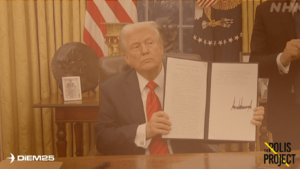
The dismissal of the first elected Communist Government in Kerala: An abuse of Article 356 of the Constitution

This essay is part of a series by Prof V. Krishna Ananth where he recalls the events that determined the course of politics in post-colonial India, sometimes reinforcing the “idea of India” and otherwise distorting that. The essays revolve around specific events and their consequences and the facts are placed in context and perspective to comprehend the times in which they are being recalled and re-presented. The series recalls the events on their anniversary, they do not follow a chronological order and are seen as moments in history.
The dismissal on 31 July 1959 of the democratically elected State Government of Kerala – the first ever instance of a parliamentary road to Communism – represents a historically significant abuse of Article 356 of the Constitution. A lot has changed since, with the Communist movement in India finding ways to work in a multi-party democracy while the use and abuse of Article 356 – the Emergency provision in the Constitution of India meant to ensure the constitutional scheme of things – persisted for long after that. Article 356 of the Constitution reads: “356. (1) If the President, on receipt of a report from the Governor of a State or otherwise, is satisfied that a situation has arisen in which the Government of the State cannot be carried on in accordance with the provisions of this Constitution, the President may by Proclamation — (a) assume to himself all or any…
Related Posts


Donald Trump’s Master Economic Plan I Opinion by Yanis Varoufakis




